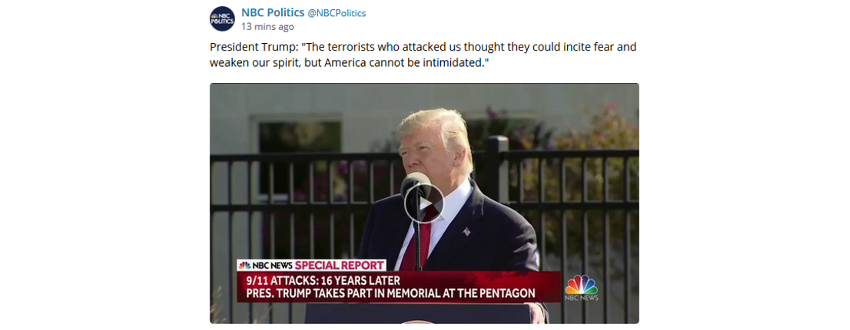
On 9/11, we all take a moment to remember the tragedy of that day so many years ago, and the sacrifice of the victims, first responders, soldiers, and others who were lost as a result. It is a time for solemn reflection, but also maybe a time for a reality check.
America fancies itself the Chuck Norris of nations. Our cultural identity is tightly wrapped in our being mighty, righteous, and unshakable. But if we’re truly honest with ourselves, if we dig under that facade of bravado, we see that we are scared as hell… and 9/11 made that possible.
Fear has always been a tool for control. It’s baked into the human condition. But 9/11 was a gateway that turned fear into a political industry. The fear that 9/11 was only the beginning was used to conflate a fear of Al-Qaeda into a fear of Muslims and the Middle East, which sold the war on Iraq. That same fear was exploited to strip away many of our rights to privacy and personal freedom. That worked so well, it spawned an entire media empire dedicated to making us afraid.
Today we are still afraid of Islamic terrorism, but we’re also afraid of North Korea, socialism, gun laws, climate scientists, taxes, immigrants, PoC, the LBGT, drugs, China, non-Christians, gluten, and even our own government. America cannot be intimidated? Bullshit. America has institutionalized intimidation.
The objective of terrorism is to instill fear. Fear is debilitating. People make poor choices when they are afraid. The 9/11 terrorists made us momentarily afraid. But opportunistic Americans have turned that into a state of perpetual fear. The terrorists have succeeded beyond bin Laden’s wildest dreams, but only because of what we’ve done to ourselves. The terrorists lit a fire, but we fed it and fanned it.
If you want to truly honor the legacy of 9/11, conquer your fear. If you want to make America great again, conquer your fear. Fear is the mind killer.




